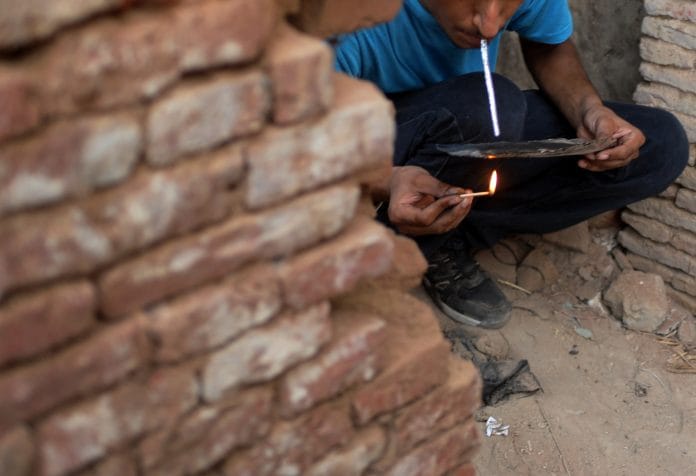A report by Vidhi Center for Legal Policy has said that the NDPS Act has failed to meet its twin objectives of deterrence and rehabilitation in Punjab.
That Punjab has a drug-abuse problem is well-known. According to National Crime Records Bureau (NCRB) statistics, Punjab’s share of crimes in India under the Narcotic Drugs and Psychotropic Substances (NDPS) Act climbed from 9.2% in 2001 to a peak of 42.3% in 2013. Although the numbers have come down gradually since then, the figure was still 10 times more than Punjab’s all-India share in Indian Penal Code crimes in 2016.
NCRB statistics also suggest that the law and order machinery in Punjab is trying its best to deal with the problem. Punjab’s share in total convictions under the NDPS Act also climbed with its increasing share in cases registered under the act. Punjab accounted for more than 30% of total convictions under the NDPS Act in 2015, the latest period for which data is available.
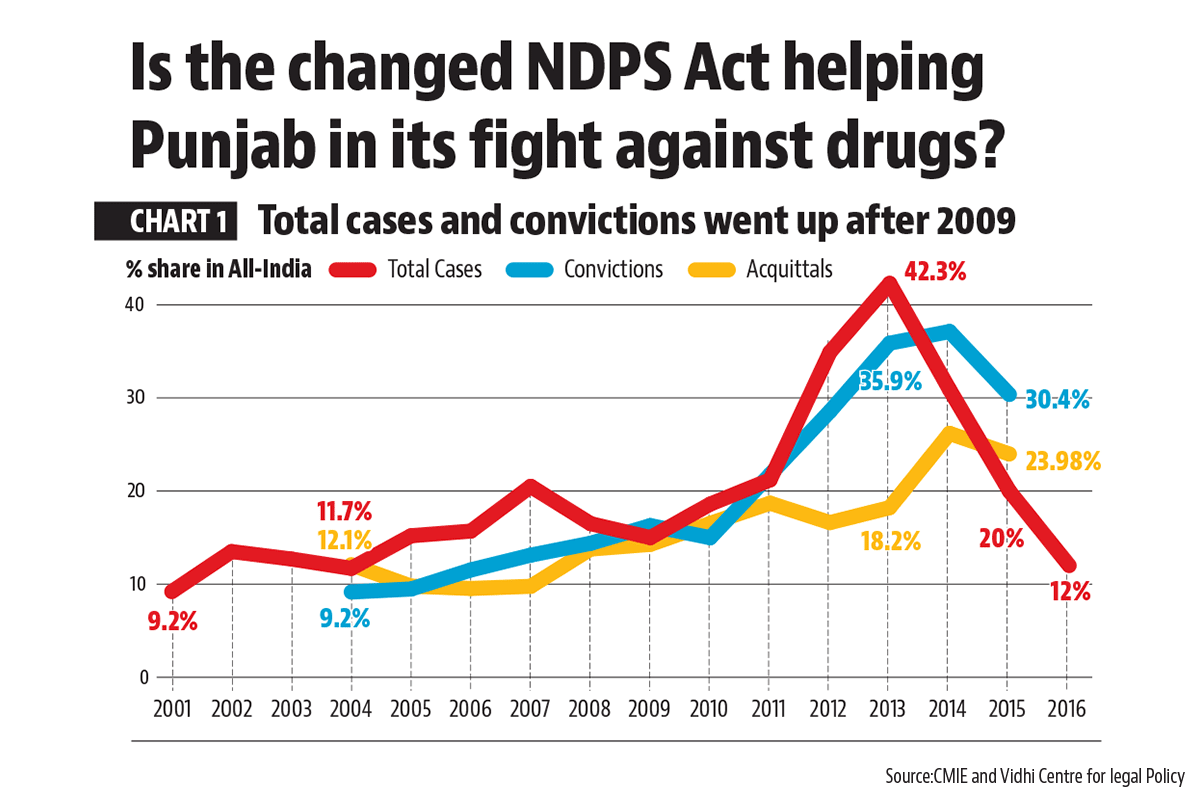
A report titled ‘From Addict to Convict: A study of the NDPS Act in Punjab’ by legal think-tank Vidhi Centre for Legal Policy, which is yet to be released and findings of which have been shared exclusively with HT, questions such a conclusion.
The report, which is based on detailed quantitative analysis of 13,350 cases registered in Special Courts in Punjab under the NDPS Act between 2013 and 2015, is quite damning in its findings and says that “The NDPS Act has failed to meet its twin objectives of deterrence and rehabilitation in Punjab”.
In fact, the report suggests that a 2009 change in the NDPS Act might actually have helped in pushing up the quantum of convictions and sentencing in comparison to similar offences (involving pharmaceutical drug abuse) from the past.
While opium and poppy husk continue to be the predominantly abused drugs in Punjab, the government’s crackdown on traditional opium supply routes to deal with the drug problem has led to a proliferation in use of pharmaceutical drugs as well.
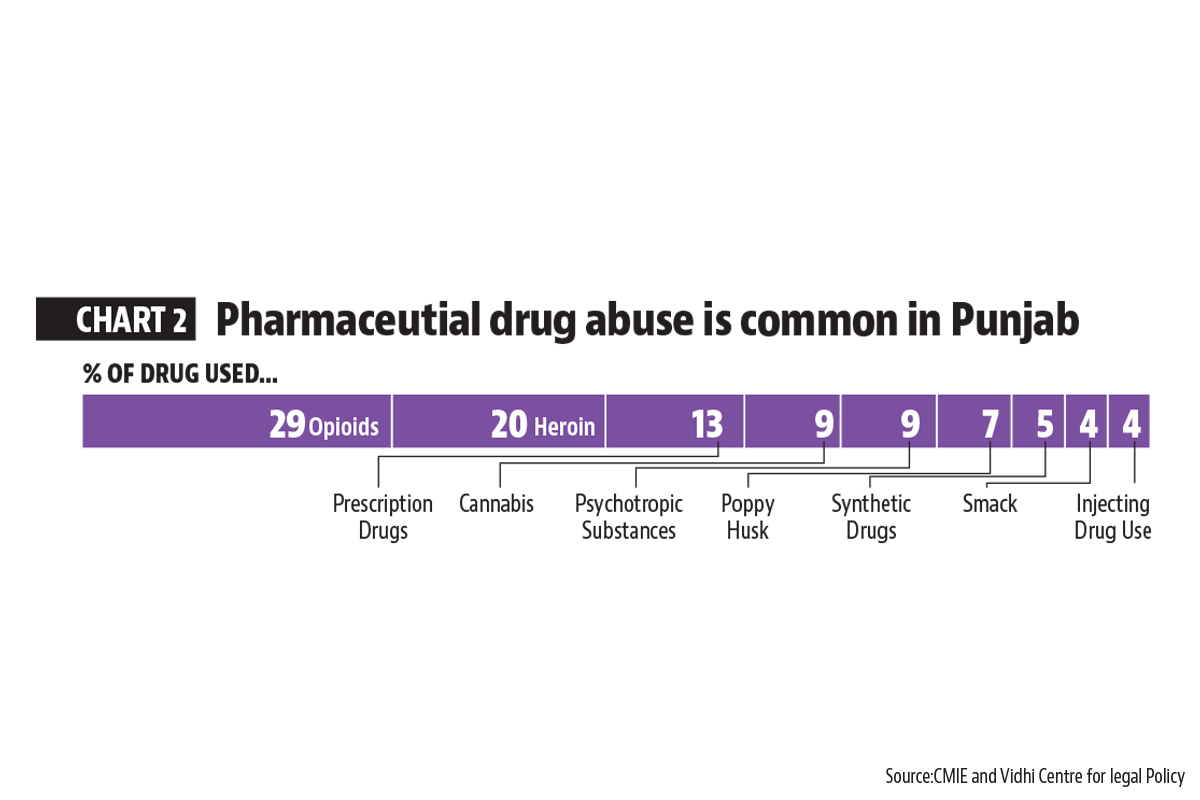
The report shows that cases involving the use of pharmaceutical drugs had a majority share in total cases of drug abuse in the districts of Amritsar, Gurdaspur, Hoshiarpur, Jalandhar, Kapurthala and Pathankot in the state. In Gurdaspur and Pathankot, the share was more than 80%.
In 2009, a notification by the department of revenue assigned punishment under the NDPS Act on the basis of weight of whole drug rather than the pure content of the drug. This has had the effect of many cases of pharmaceutical drug seizures being categorised as commercial rather than intermediate or small quantities.
The former category leads to greater convictions with longer sentences as it is seen as drug-peddling rather than possession for self-consumption.
An example can make this clearer. Benadryl, a common cough syrup basically contains Dextromethorphan Hydrobromide, which works by suppressing the need to cough. A 100 ml bottle of the cough syrup contains 300mg of the drug in it.
If Dextromethorphan Hydrobromide were listed as substance used for pharmaceutical drug abuse, the quantity seized from the accused would matter in the case. Before 2009, recovery of a 100 ml bottle would have been treated as seizure of 300 mg of the drug, but after the change in law it would be treated as a seizure of weight of the entire cough syrup.
As can be seen in Chart 1, Punjab’s share in all-India NDPS crimes and convictions started rising at a very fast rate in the period after 2009. The report also shows that pharmaceutical cases have had a greater share of commercial use category and hence longer sentences than narcotic cases in the state.
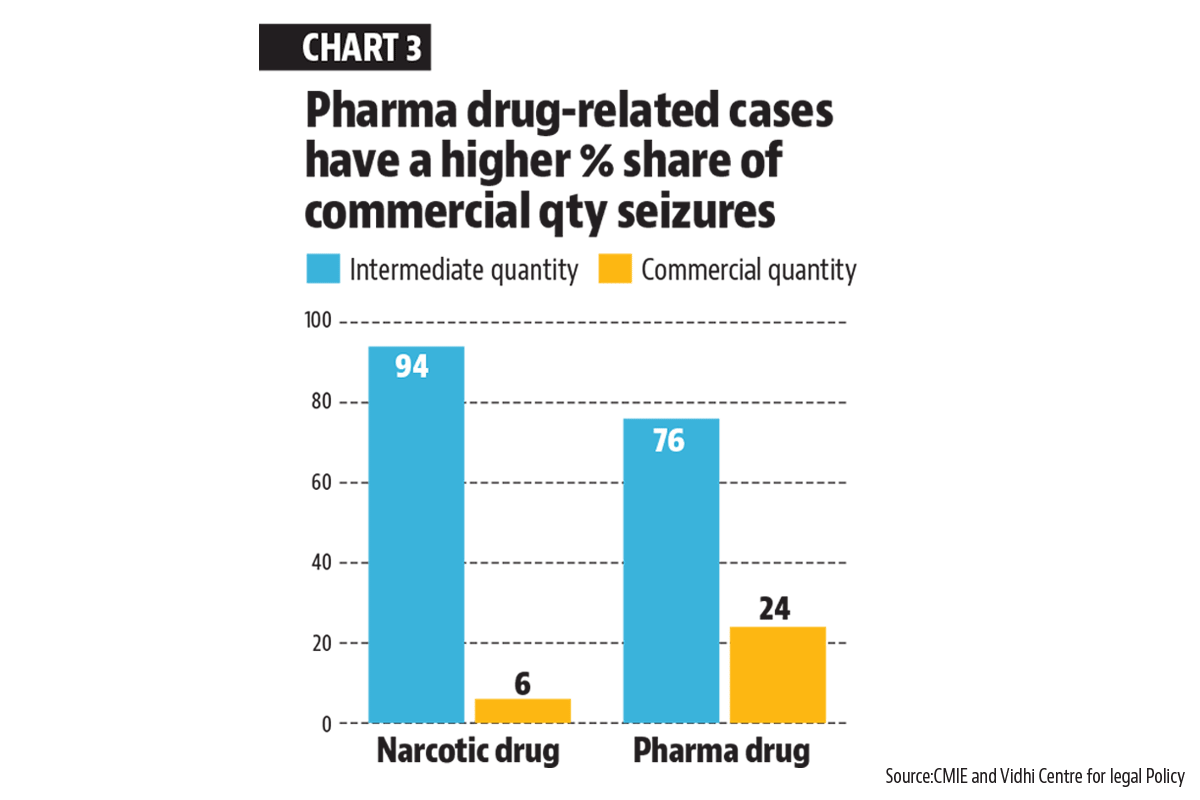
What makes things even worse is the fact that sentencing in pharmaceutical cases is extremely arbitrary in the courts. According to the report, four cases in Patiala district, where 500 tablets of diphenoxylate were seized saw sentencing ranging between three months to three years.
While the state has been handing out disproportionate punishments to accused, who are probably drug-users (many of them even first-time offenders) rather than peddlers, it has done little in terms of rehabilitating those who have become addicted to use of drugs.
The report shows that there was an acute dearth of rehabilitating infrastructure, taken as number of beds in de-addiction facilities, in comparison to number of cases registered under the NDPS Act in 2014.
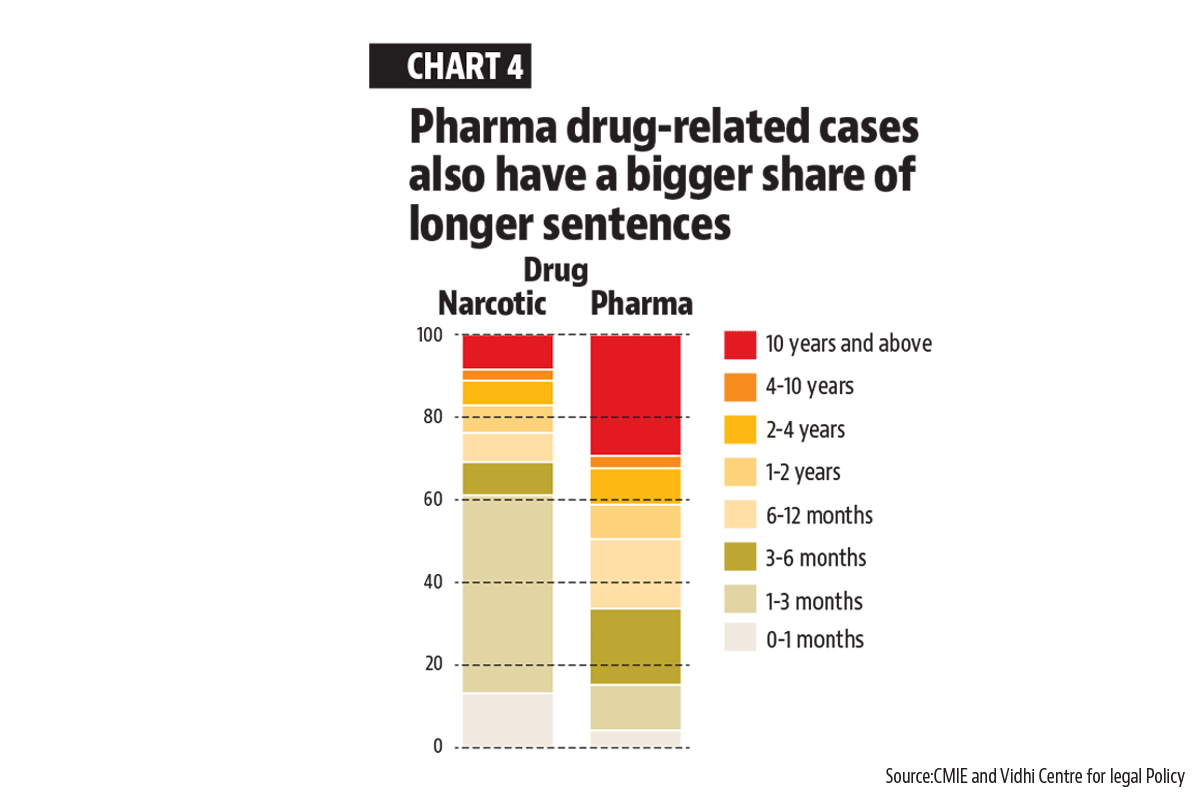
What is even worse is that even the limited infrastructure which is available is not being used effectively due to lack of focus on rehabilitation in the criminal justice system. The report says, “Ss. 39 and 64A of the NDPS Act allow people caught with small quantities of drugs, or with drugs for personal consumption, to opt for de-addiction treatment in a government-approved centre instead of imprisonment or prosecution.
But responses to RTIs we filed clearly establish that between 2013 and 2015, no person brought before the court in Punjab was directed to de-addiction and rehabilitation through the courts. Various interviews with judges and lawyers revealed that this provision for diverting addicts was mostly unknown to the legal practitioners and judges.”
By special arrangement with ![]()



